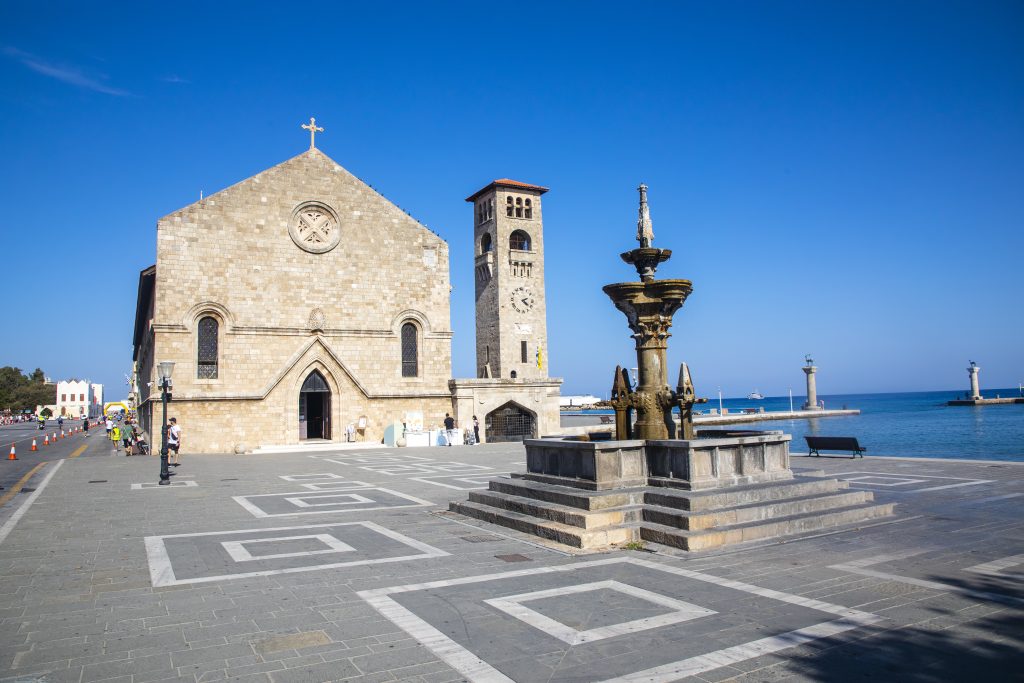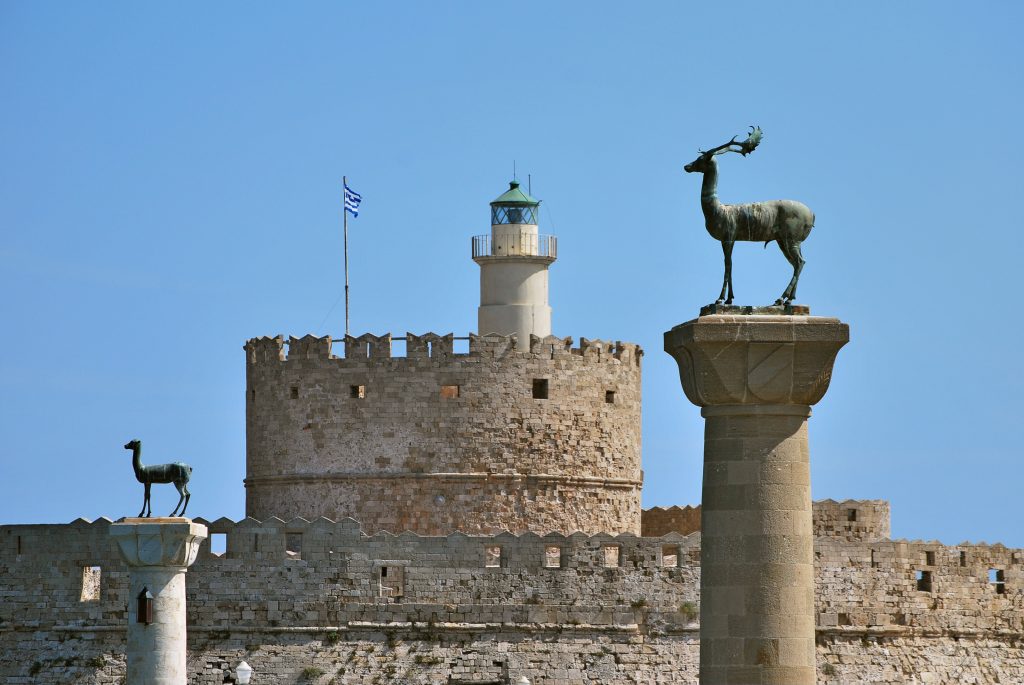Aegean Greek Immersion Summer School | AeGIS
International Summer School for the Greek Diaspora
School of Humanities - Department of Primary Education
13 May 2024 to 07 June 2024
Rhodes
The Aegean Greek Immersion Summer School (AEGIS): International Summer School (13 May 2024 – 07 June 2024) is organized by the Department of Primary Education at the School of Humanities and will take place on the island of Rhodes, Greece. The curriculum is tailored to the needs of students from the Greek Diaspora, as well as foreign language learners. It is structured around three levels of language proficiency (A1, A2, B1/B2) in accordance with the levels of the Common European Framework of Reference for Languages. The summer school aims to cover the communicative and academic needs of the participants while taking into consideration their identity negotiation process. In this context, modern methods and pedagogical approaches are applied to the teaching of Greek as a heritage/foreign language. They include interaction of learners with native speakers, visits to sites of cultural and historic significance, as well as experiential learning through active participation in cultural events, e.g. participating in Greek cooking and dancing lessons, and daily sports and social activities. The program utilizes the experience and expertise of the staff of the Department of Primary Education in issues regarding language teaching in multilingual communities and the creative use of new technologies in education.
The summer school provides a unique opportunity for participants to develop communication skills in both oral and written language, through a gradual and conscious acquisition of the basic structures and vocabulary of Modern Greek and through a critical approach to various contemporary cultural contexts where language is used. At the end of the course, participants are expected to function effectively as competent users of Modern Greek in their daily communication environments, in interpersonal relationships, as well as, in dealing with more specific personal affairs. Through the development of appropriate communication and sociocultural skills, they will be able to use the language fluently, not only for social, but also for professional and academic purposes. Moreover, students are expected to expand their knowledge to more specific aspects of Modern Greek culture and literature by participating in various cultural and academic events when they return to their communities


Learning Outcomes
The Summer School aims to create a learning community between learners and native speakers of the language. There is a defined curriculum for each language level (A1, A2 and B1). For each level, specific expected learning outcomes and corresponding educational activities have been identified for all participants. Assessment will take place through a variety of techniques (tests, quizzes, reflection papers, collaborative projects) based on the students’ interests and their participation in the educational activities of the program. The desired learning outcomes are described by class/level below:
Α1 Level
beginners
The overall goal of this course is to support students in developing basic oral and written communication skills in Modern Greek through a gradual acquisition of the writing system, pronunciation, basic forms and syntax. Students at the end of the term should be able to use Modern Greek in order to satisfy basic needs (i.e., introducing themselves, asking for and receiving information etc.), to participate in simple conversations, to read course materials and write short paragraphs on familiar topics. Furthermore, they will familiarize themselves with aspects of Modern Greek culture and life in contemporary Greece.
Α2 Level
intermediate
The course aims at supporting students to develop fluency in Modern Greek in order to satisfy everyday communication needs (i.e., interact with Greek native speakers, read magazines and newspaper articles with familiar topics, watch Greek news and films, and write short texts such as emails and essays). Furthermore, students will expand their knowledge in Modern Greece and its culture through their exposure to various articles, films, music, etc. and real-life situations and experiences.
B1 Level
advanced
After completing the course, students will be able to understand various forms of spoken or written language including specialized articles, scientific and literary texts and to communicate their views on the principal or secondary ideas expressed in them. These processes will enable students to watch movies and TV shows in Greek, participate in lectures, read articles and use dictionaries, encyclopedias, grammar books and printed or electronic educational material in the Greek language. At the same time, enriching students’ knowledge in complex grammatical and lexical phenomena will contribute to further cultivation of comprehension and production strategies to prepare and process different types of texts (descriptive, narrative, argumentative, informative, instructions). Through their contact with a wide range of text genres and cultural contexts, students will become acquainted with characteristics of Greek society and will be able to critically approach traditional, historical, and cultural elements, deepening their knowledge on the contemporary reality experienced by the Greeks in Greece and abroad.
